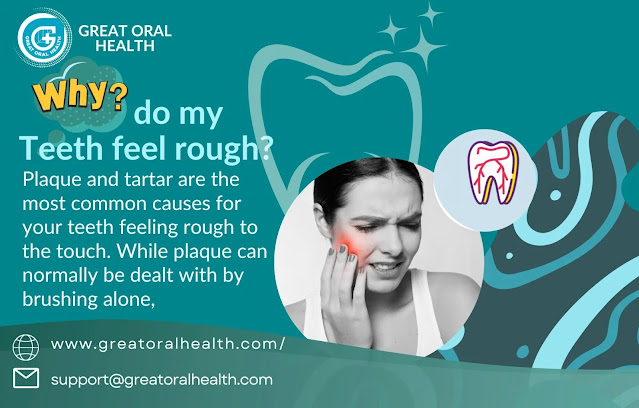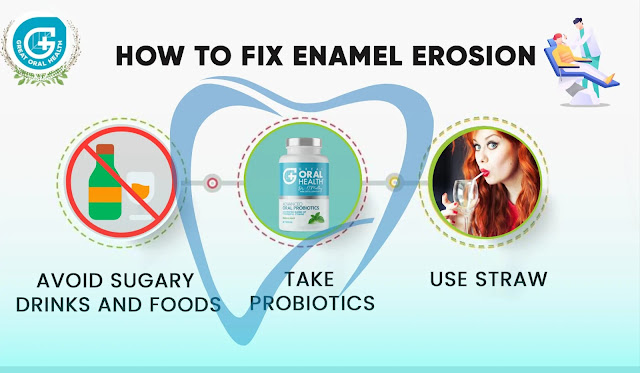If your Teeth Feel Weird , you could feel anxious. Since that's the case, doesn't it indicate that a costly and painful dental procedure will be required in the near future?
My Teeth Feel Weird is usually something to be worried about. But it's not necessary to imagine that you're in danger until you comprehend the cause of the problem!
The most effective method to get an accurate diagnosis of your condition is to consult a specialist dentist, we'll discuss the common reasons of Why Do My Teeth Feel Weird could appear to be a bit off (and what you can do about it).
To determine the reason for the discomfort, begin by
identifying the kind of discomfort you're feeling. Additionally,
think about the place of the issue.
Which among the scenarios below best accurately is your
personal situation?
Your Teeth Hurt
When you're suffering from teeth pains, it may be
difficult to think of any other reason!
Based on the degree of the pain depending on the severity toothache may
make vital functions like eating food, talking, or even lying your head down
for a nap extremely painful.
If your teeth are constantly hurting and you are
constantly aching, it could be so distracting that you start to lose track of
your tasks or even avoid social events.
Is It Tooth Decay?
If you experience tooth pain in a specific location the
tooth decay (also called a cavity) could have occurred. Dental
decay is typically triggered when you consume sweet, starchy, or acidic
beverages and food or takes a less regimented approach to their dental health
routine.
Did You Undergo a Dental Restoration Procedure in the Past?
An acute pain in a specific tooth or the area around it
may also be a sign that an amalgam filling or crown is not in place and
requires repair.
If you have undergone dental restorations in the past and
the tooth, or your teeth, are experiencing pain, you should make an appointment
at your doctor.
Is It Gum Disease?
Soreness throughout the majority or all of your teeth
could be a symptom caused by periodontitis (gum disease). The risk
factors for gum disease are genetics, poor diet as well as certain medications
and smoking.
Is It Bruxism?
There is also the possibility of having an undiagnosed condition known as bruxism. This is the condition of constant teeth grinding throughout the night or during the day. It is usually the result of stress or sleep disorder.
Why Does My Mouth Feel Fuzzy?
If you drag your tongue along your teeth in front, how do
they feel? Are they smooth and soft or do you notice an uncoated or teeth fuzzy texture?
It's normal for teeth to form film due to a variety of reasons. While shiny teeth indicate excellent dental hygiene, a rough mouth may be equally healthy with a little more focus.
This guide will help you identify where the issue lies issue to help you make the right steps for the perfect smile.
WHY DO MY TEETH FEEL ROUGH?
Your teeth ought to feel smooth and even, particularly after you've cleaned them. In any case, once in a while Tooth feel rough. on the off chance that you run your tongue over it, it feels lopsided as opposed to smooth.
How to Fix Tooth Enamel Erosion?
Veneer is the most grounded tissue in the human body - considerably more grounded than bone. As the clear external layer of a teeth, finish safeguards from brutal synthetic compounds and temperatures.
Your veneer additionally safeguards your teeth during everyday exercises while you're gnawing, biting, and crunching food sources; assuming you grate your teeth around evening time, your lacquer shields your teeth and gums from that effect also.
Common Causes of Tooth Enamel Erosion
- Fruity beverages, which are exceptionally acidic and high in sugar
- Sweet and bland food varieties like syrups and white bread
- Sodas, which are high in citrus and phosphoric acids and in sugar
- Extreme measures of L-ascorbic acid
- Drugs like allergy medicines and ibuprofen
Hydrate
- The fluoride in water assists battle tooth with rotting by staying in your spit, permitting it to retain into your finish.
- By biting it, you animate spit creation, which can purify your lacquer and remineralize your teeth.
Brush with veneer reinforcing toothpaste
- Brush two times day to day with hydroxyapatite toothpaste which is intended to solidify your finish and safeguards against holes.



Comments
Post a Comment